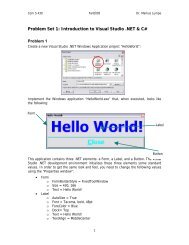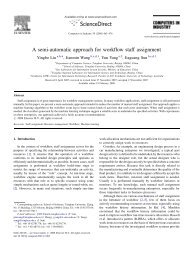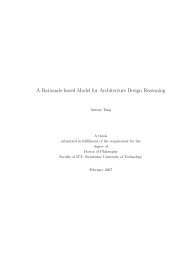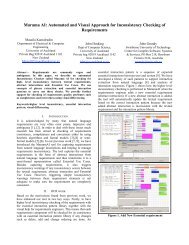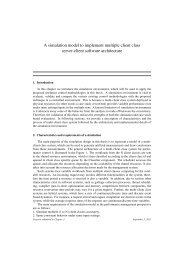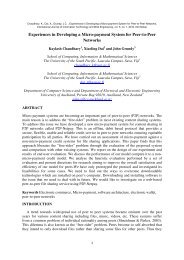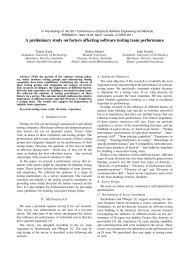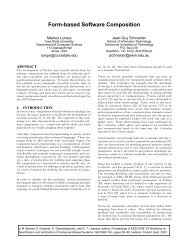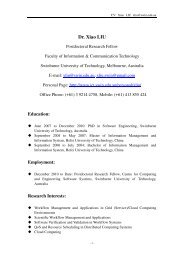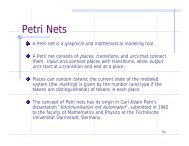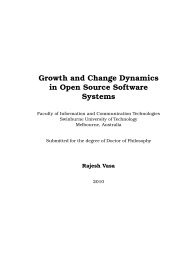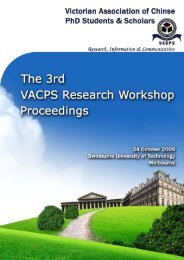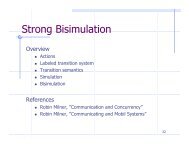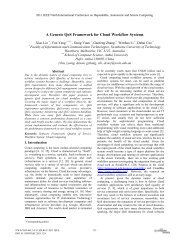Xiao Liu PhD Thesis.pdf - Faculty of Information and Communication ...
Xiao Liu PhD Thesis.pdf - Faculty of Information and Communication ...
Xiao Liu PhD Thesis.pdf - Faculty of Information and Communication ...
You also want an ePaper? Increase the reach of your titles
YUMPU automatically turns print PDFs into web optimized ePapers that Google loves.
Abstract<br />
Cloud computing is a latest market-oriented computing paradigm which can provide<br />
virtually unlimited scalable high performance computing resources. As a type <strong>of</strong><br />
high-level middleware services for cloud computing, cloud workflow systems are a<br />
research frontier for both cloud computing <strong>and</strong> workflow technologies. Cloud<br />
workflows <strong>of</strong>ten underlie many large scale data/computation intensive e-science<br />
applications such as earthquake modelling, weather forecast <strong>and</strong> Astrophysics. At<br />
build-time modelling stage, these sophisticated processes are modelled or redesigned<br />
as cloud workflow specifications which normally contain the functional<br />
requirements for a large number <strong>of</strong> workflow activities <strong>and</strong> their non-functional<br />
requirements such as Quality <strong>of</strong> Service (QoS) constraints. At runtime execution<br />
stage, cloud workflow instances are executed by employing the supercomputing <strong>and</strong><br />
data sharing ability <strong>of</strong> the underlying cloud computing infrastructures. In this thesis,<br />
we focus on scientific cloud workflow systems.<br />
In the real world, many scientific applications need to be time constrained, i.e.<br />
they are required to be completed by satisfying a set <strong>of</strong> temporal constraints such as<br />
local temporal constraints (milestones) <strong>and</strong> global temporal constraints (deadlines).<br />
Meanwhile, task execution time (or activity duration), as one <strong>of</strong> the basic<br />
measurements for system performance, <strong>of</strong>ten needs to be monitored <strong>and</strong> controlled<br />
by specific system management mechanisms. Therefore, how to ensure satisfactory<br />
temporal correctness (high temporal QoS), i.e. how to guarantee on-time completion<br />
<strong>of</strong> most, if not all, workflow applications, is a critical issue for enhancing the overall<br />
performance <strong>and</strong> usability <strong>of</strong> scientific cloud workflow systems.<br />
At present, workflow temporal verification is a key research area which focuses<br />
on time-constrained large-scale complex workflow applications in distributed high<br />
performance computing environments. However, existing studies mainly emphasise<br />
IV



